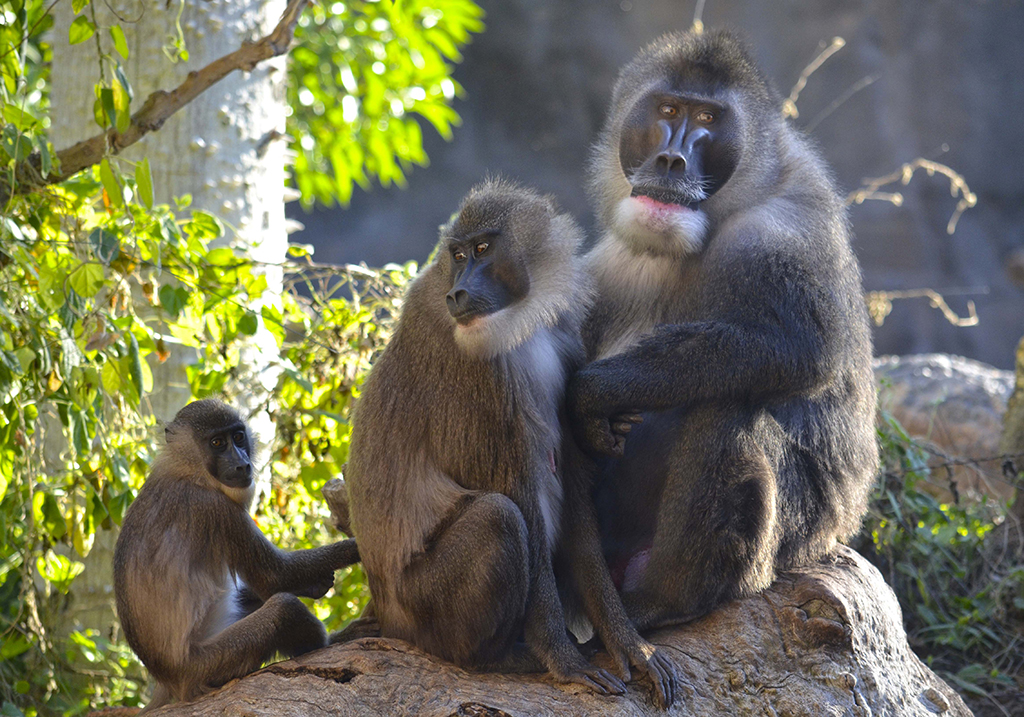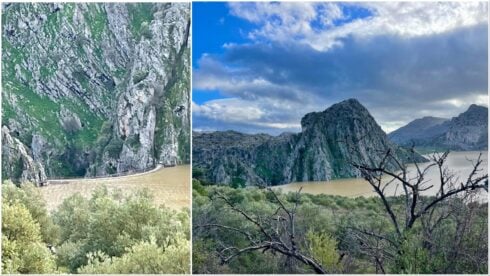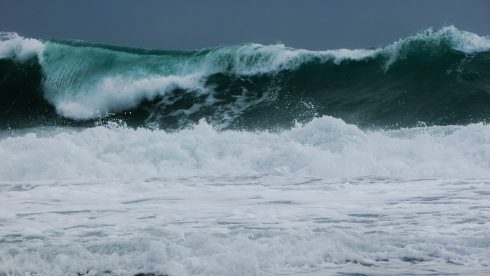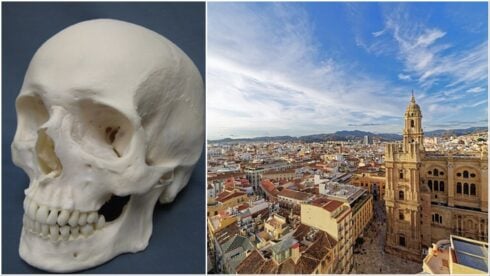KEEPERS at Bioparc Valencia are mourning the loss of Rafiki, a male drill monkey who has proved valuable in ensuring the survival of his species.
The 20-year-old primate has fathered 14 offspring with females Kianja and Abuja in the Valencian zoo, six of whom remain there while the other eight have been relocated to zoos across Europe as part of breeding programmes.
The drill monkey, known for its colourful rump, is one of the most endangered primates in Africa, with an ever decreasing habitat limited to an area in Cameroon and Nigeria between the Sanaga and Cross Rivers, and on the island of Bioko, part of Equatorial Guinea.
Staff produced a video of Rafiki showing highlights of his life.
“In this species, which exhibits a remarkable sexual dimorphism (describing hugely different traits of male and female) Rafiki’s carriage was impressive,” said a statement from the Bioparc.
“He had all the typical characteristics of his genus: a lion-like crown, red colouration under the lip, prominent fangs and bright purple-blue and ruby colours on the buttocks and genitalia.”
Rafiki was diagnosed with lymphoma after staff noticed that he had ‘suffered recent weight loss and deteriorating appearance’.
They said that ‘oral chemotherapy treatment allowed Rafiki’s life to be prolonged for a while, but finally the difficult decision had to be taken to euthanise him to avoid his suffering’.
He was finally put to sleep on the morning of Wednesday April 6.
The zoo announced the sad news on twitter, describing him as ‘majestic’.
Rafiki was born in 2002 in Germany’s Hanover Zoo and arrived in Valencia in 2007 with a view to create a breeding group to ensure the species’ survival.
There are thought to be fewer than 4,000 Mandrillus Leucophaeus left in the wild and the species appears on the IUCN red list as ‘endangered’, the step prior to ‘critical’.
Valencia Bioparc has become one of the main European conservation bodies for drills and other endangered species, working on site in Cameroon to protect the existing populations and promote their recovery.
READ MORE:
- Bioparc in Spain’s Valencia celebrates birth of highly threatened species of primate
- How the brown bear has been brought back from the brink of extinction to thrive in Spain’s Pyrenees
Click here to read more Valencia News from The Olive Press.









